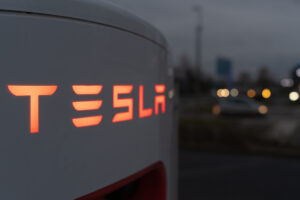
2 court trials coming up against Tesla over alleged Autopilot crashes
By onLegal
Tesla will face two trials this fall over allegations that its Autopilot feature quit working, causing injuries and two deaths.
The first will be held in September regarding a 2019 death near Los Angeles, according to Reuters.
The lawsuit alleges that Autopilot caused owner Micah Lee’s Model 3 to veer off a highway at 65 miles per hour, strike a palm tree, and burst into flames within just seconds.
Lee was killed and two passengers were seriously injured, including an 8-year-old boy. The suit accuses Tesla of knowing that Autopilot and other safety systems were defective when it sold the car.
The second trial is set for early October in Florida over another 2019 crash north of Miami. Owner Stephen Banner’s Model 3 allegedly drove under the trailer of a tractor-trailer that had pulled into the road, ripping the roof off and killing Banner. Reuters reports that Autopilot failed to brake, steer, or do anything to avoid the collision, according to the lawsuit filed by Banner’s wife.
Tesla has blamed the drivers for the crashes and said, “There are no self-driving cars on the road today.”
The outcome of the cases has the potential to set a precedent moving forward in liability for crashes when autonomous vehicles, regardless of SAE level, are involved.
Reuters reports that in court filings, Tesla has argued that Lee drank alcohol before driving and that it isn’t clear if Autopilot was on at the time of the crash. Tesla filed an emergency motion in court last week to keep deposition transcripts of its employees and other documents secret, according to the report.
In April, a California jury ruled that Tesla’s Autopilot was not the cause of a crash that injured a Los Angeles woman in 2019.
Justine Hsu, of El Monte, claimed in her lawsuit against Tesla that her 2016 Model S’s Autopilot failed to recognize a center median, causing it to crash on July 6, 2019. A key takeaway from the verdict is how following instructions plays a pivotal role in liability, as Tesla argued the driver in this case went against its user manual in deploying Autopilot on city streets.
A class action lawsuit filed last September in the U.S. District Court for the Northern District of California accuses Tesla of “making misleading and deceptive statements regarding the company’s advanced driver assistance systems (“ADAS”) technology” for years.
“Tesla has deceived and misled consumers regarding the current abilities of its ADAS technology and by representing that it was perpetually on the cusp of perfecting that technology and finally fulfilling its promise of producing a fully self-driving car,” the complaint states. “Although these promises have proven false time and time again, Tesla and Musk have continued making them to generate media attention, to deceive consumers into believing it has unrivaled cutting-edge technology, and to establish itself as a leading player in the fast-growing electric vehicle market.”
Lawsuits have also been filed against Tesla for alleged sharing of photos and videos amongst employees that were taken by customer vehicles, alleged monopolizing of parts and repairs, and making “materially false and misleading” claims about Autopilot functionality.
Tesla has been under scrutiny by the National Highway Traffic Safety Administration (NHTSA) as well for injuries and deaths related to Autopilot and its Full Self-Driving feature.
Images
Featured image credit: Anski/iStock
